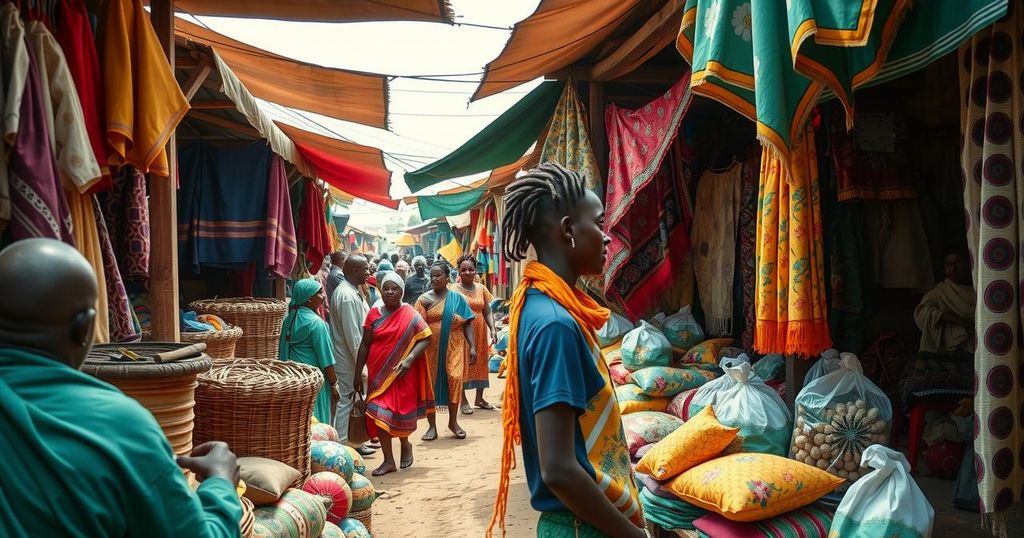The naira’s dramatic decline has elevated Nigeria’s competitiveness to a 25-year high, resulting in a record trade surplus. The country’s economic reforms are gaining traction, but concerns about poverty and the need for foreign direct investment persist. Its future hinges on balancing a competitive currency while attracting necessary capital and improving local economic conditions.
Nigeria’s currency, the naira, has fallen significantly, resulting in the nation achieving a 25-year high in competitiveness. The naira experienced a devaluation exceeding 70 percent, plunging from 460 to just under 1,500 per dollar. This dramatic adjustment has positioned Nigeria among those with the largest currency shifts globally, second only to the Ethiopian birr, as noted by a report from Chatham House.
As a consequence of the naira’s decline, Nigeria has observed its trade surplus escalate to the highest level in over a decade. Analysts have projected a continuation of this upward trend, with a net trade surplus reaching N16.9 trillion in 2024, which represents more than double the previous year’s surplus. This surplus indicates that the country’s export activities have outpaced its imports substantially.
Moreover, the naira’s depreciation has positively influenced Nigeria’s balance of payments, contributing to consistent progress over nine consecutive quarters. An increase in foreign capital inflows has led to the nation’s reserves surpassing $40 billion. The removal of fuel subsidies coupled with currency devaluation has also improved fiscal health, lowering the fiscal deficit from 6.4 percent to 4.4 percent of GDP between early 2023 and early 2024.
While the naira’s weakness has advantages, it also presents challenges, notably with imports becoming more expensive. Some analysts underscore the potential risks associated with excessively cheap dollars, suggesting that they might motivate capital flight and hinder economic growth. The situation has provoked concerns for many Nigerians who continue to face financial struggles amidst ongoing economic reforms initiated by President Tinubu.
To sustain its economic recovery, Nigeria must entice foreign direct investment (FDI). Despite its large population, the country has faced difficulties in attracting more than $2 billion in net FDI annually. Discussions surrounding currency stability indicate that if the naira appreciates too much, it may jeopardize the reforms’ benefits and impact overall economic development.
In conclusion, Nigeria’s remarkable competitiveness, attributed to the dramatic depreciation of the naira, has led to significant trade surpluses and a bolstered balance of payments. However, the challenges posed by a weaker currency, rising import costs, and the socioeconomic implications for citizens remain pressing concerns. For Nigeria’s economic future, attracting foreign direct investment while ensuring a stable currency will be vital in maintaining growth and development and mitigating poverty.
Original Source: businessday.ng






